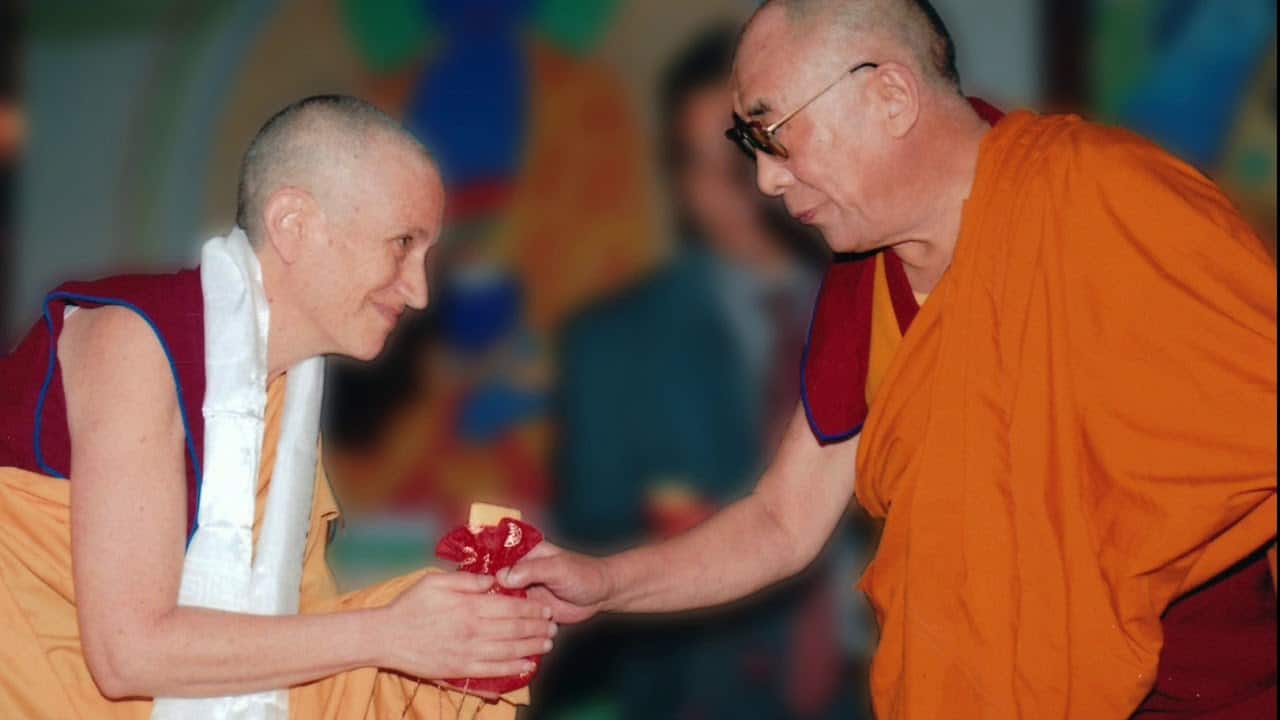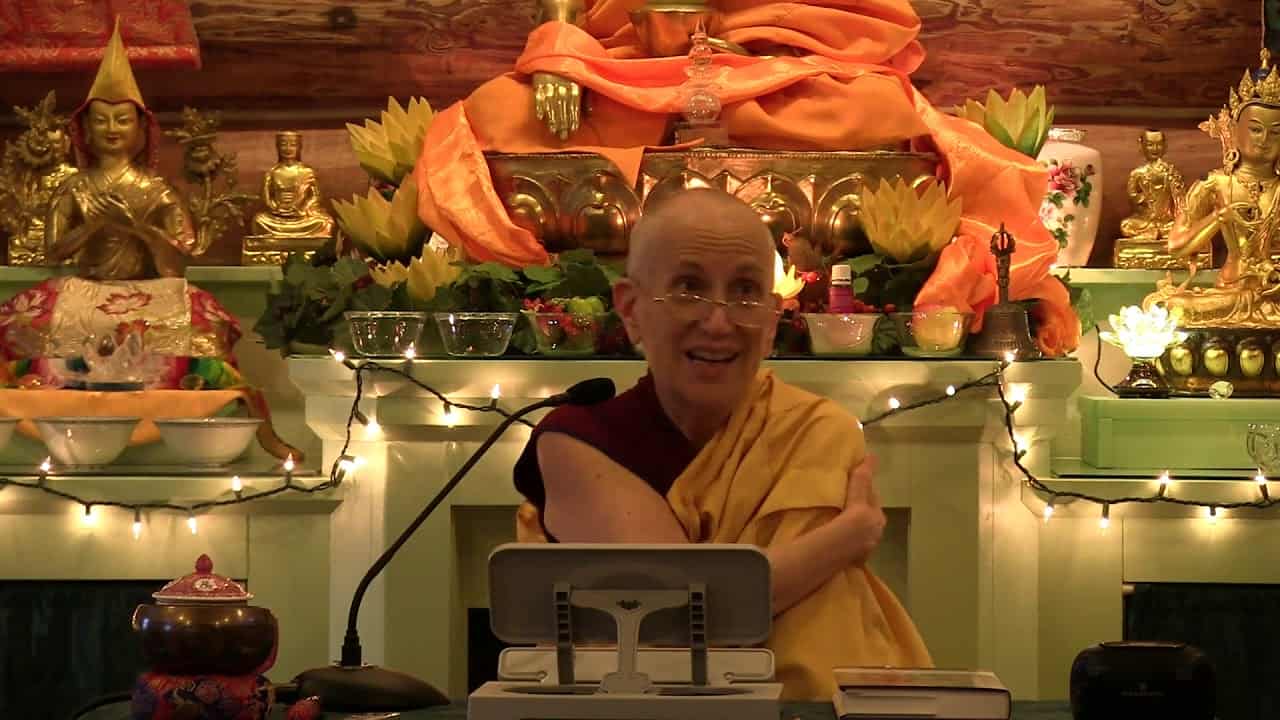Reliable cognizers based on example and authoritative testimony
07 Foundation of Buddhist Practice
Part of a series of teachings given during a retreat based on the book The Foundation of Buddhist Practice given at Sravasti Abbey.
- Generating a good motivation for voting
- Wrong consciousnesses and our emotional life
- Working with expectations in meditation
- Wrong syllogisms in our life
- Reliable cognizers based on an example
- Reliable cognizers based on authoritative testimony
The Foundation of Buddhist Practice 07: Reliable cognizers based on example and authoritative testimony (download)
Contemplation points
- How can you use an understanding of cognizers to transform the way you interact with the world, stabilize your own mind, and practice the path with diligence and focus?
- Why is happiness not an indicator of a correct consciousness and unhappiness (or a sense of sobriety) not an indicator of an incorrect one? Think of examples of each.
- Identify the parts of a syllogism and the three criteria in the syllogism: Consider smoking, it is a health risk because it is directly responsible for approximately 80 to 90 percent of lung cancers.
- Behind our emotions we often find “syllogisms.” Identify the parts of the following syllogisms and test them with the three criteria to see if they are correct. Make up some of your own syllogisms to examine too…
- Consider me, I am an unlovable person because my friend is mad at me.
- Consider my friend, he is untrustworthy because he didn’t do what I wanted him to do.
- Consider my ideas, they are always good because they are the ideas of a smart person.
- Review the criteria for determining if a scripture is reliable. What makes the Buddha a reliable being and why is this important to your study of the Dharma? How can you verify the Buddha’s reliability from your own experience? Bring to mind specific examples of how you have applied the teachings to your own life.
Venerable Thubten Chodron
Venerable Chodron emphasizes the practical application of Buddha’s teachings in our daily lives and is especially skilled at explaining them in ways easily understood and practiced by Westerners. She is well known for her warm, humorous, and lucid teachings. She was ordained as a Buddhist nun in 1977 by Kyabje Ling Rinpoche in Dharamsala, India, and in 1986 she received bhikshuni (full) ordination in Taiwan. Read her full bio.


